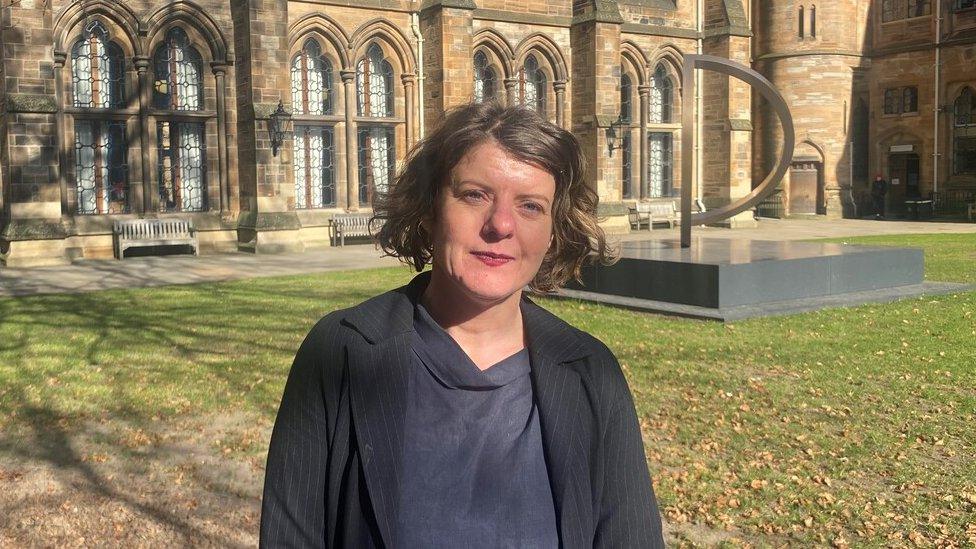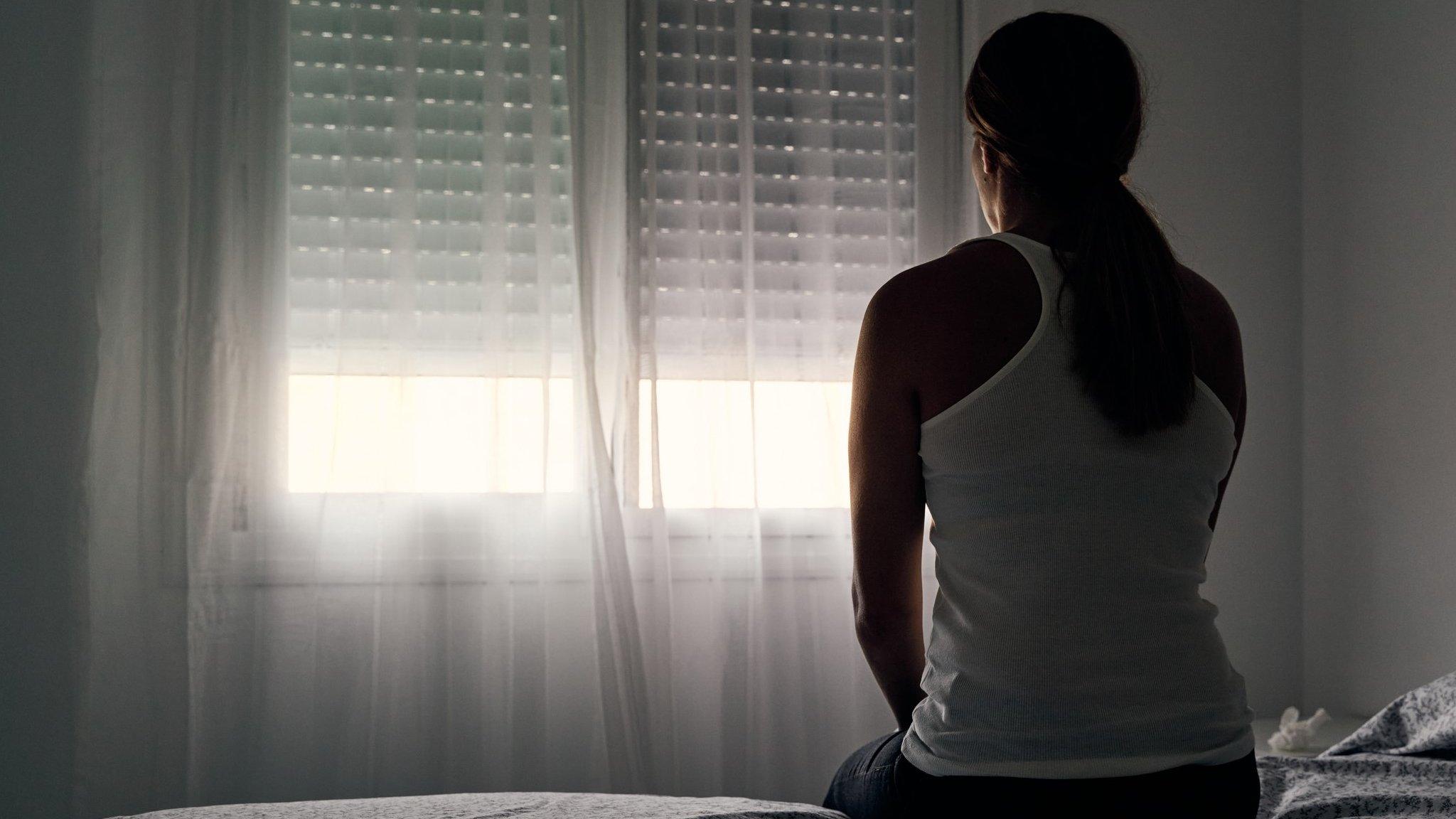Free law clinic to help sexual assault victims
- Published

The University of Glasgow law clinic will provide legal advice to rape victims
Plans for a new law clinic to support victims of sexual offences have been announced by University of Glasgow.
The Emma Ritch Law Clinic, named after a women's rights campaigner and Glasgow University graduate who died in 2021, will provide free legal advice and representation from specialist Scottish solicitors.
Based at the university, it claims to be the first of its kind in the UK.
Rape Crisis Scotland will be able to refer clients for help later this year.
Researchers also hope to establish the difference that such help can make to complainers' experiences of the criminal justice system.
Rape survivor Miss M, who was sexually assaulted while she was a student at the University of St Andrews in 2013, said the initiative could improve women's experience of the justice system.
A criminal trial in the High Court ended in a not proven verdict, but she won her case against Steven Coxen in a landmark civil case where she had specialist representation.
She said: "If I had a legal-based question, something the defence were requesting from me, whether it was to have a psychiatric assessment completed or requests for my medical records, I never had anywhere I could turn.

Miss M was raped while studying at the University of St Andrews
"It was the first time I'd ever been through a process like that, for me and my family.
"My parents tried to support me when I was a teenager going through this process, but it was difficult because I didn't know where I could go and ask these questions.
"I didn't have any background in law and neither did my parents, so I felt like a pawn in the process during the criminal trial.
"It's often said that when you're raped your control is taken from you, and I felt like that was only exacerbated by the criminal process."
Rape Crisis Scotland told BBC Scotland that having a lawyer who understands the system could be "transformative" for complainers.
Chief executive Sandy Brindley said: "It is so needed because too often rape complainers feel on their own and on the edges of the system.
"This service should make people feel much more central and much more able to access their rights."
Ms Brindley said fears around privacy can often put people off reporting sexual offences.

Sandy Brindley said the project could help more victims
"If you were a victim of a burglary, nobody would be trying to get a hold of your medical records or trying to bring up your sexual history in court," she said.
"It is particularly on privacy issues that complainers really do need access to high quality legal advice."
The university secured funding to establish the clinic through the Sam and Bella Sebba Foundation, with additional support provided by the Scottish government.
One of the co-directors, Eamon Keane, said the clinic would meet a "significant" unmet legal need in Scotland.
"For a complainer, often sexual offence prosecutions involve the potential admission of highly sensitive evidence around a highly emotive topic," he said.
"The law in this area is also extremely complex.
"It's frankly for the birds that someone with no legal training would be able to understand fully the various evidential processes that might be taking place in advance of the trial."
Related topics
- Published28 June 2022
